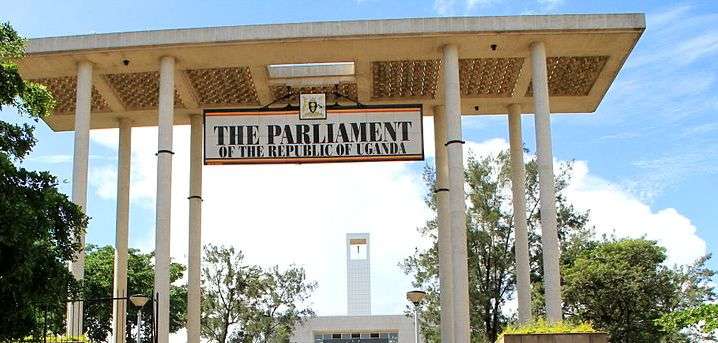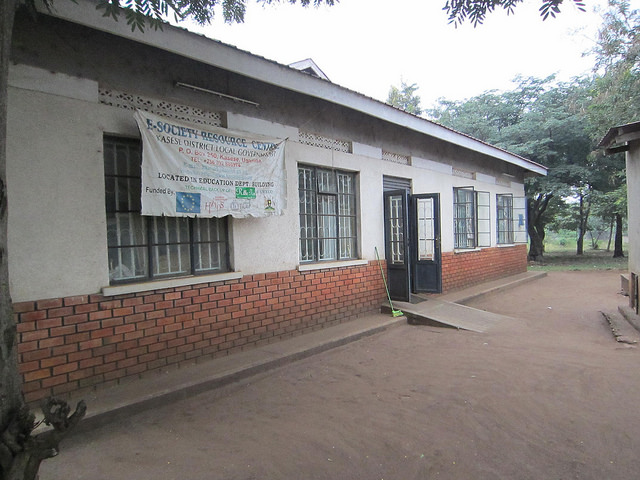In our research series this month, we review government and non-government ICT initiatives in Uganda. We examine how ICT-related policies and other legislation affect citizen participation, democratic governance and influence the link between ICT and public services delivery.
The report is based on policy analysis, stakeholder interviews and literature review, and aims to inform awareness raising initiatives and advocacy for more progressive policies and practices regarding the use of ICT in governance and civic participation in Uganda.
Read the full report
Hunting Down Social Media ‘Abusers’ in Uganda as Elections Near
By CIPESA Staff |
As Uganda draws closer to the February 2016 presidential elections, the fever of anxiety in government corridors is rising. Over the years, election periods have seen a crackdown on social media, voices critical of the ruling party, and independent media in the guise of promoting public order and unity as well as preventing the spread of false information. This, however, has sparked debate on the fine line between preserving national cohesion and hampering free speech.
See our full analysis of Hunting Down Social Media ‘Abusers’ in Uganda as Elections Near in our Policy Briefing Series
Reflections on Uganda’s Draft Data Protection and Privacy Bill, 2014
Towards the end of 2014, Uganda’s government through the National Information Technology Authority (NITA-U), Ministry of Information Communication and Technology (MoICT) and the Ministry of Justice and Constitutional Affairs (MOJCA) issued a draft Data Protection and Privacy Bill for public comment. The Bill seeks to protect the privacy of the individual and personal data by regulating the collection and processing of personal information. It provides for the rights of persons whose data is collected and the obligations of data collectors and data processors; and regulates the use or disclosure of personal information.
The Collaboration on International ICT Policy in East and Southern Africa (CIPESA) welcomes the move by the Uganda Government, however, following an analysis of the Bill, we identified some areas of concern and gaps that need to be addressed. We have assembled our comments as part of the CIPESA ICT briefing series and have also submitted official comments to the government as part of the public comments phase.
Read more on our Reflections on Uganda’s Draft Data Protection and Privacy Bill, 2014 in the CIPESA ICT Briefing series and see our Formal Comments Submitted for consideration.
In Search of Local Knowledge on ICTS in Africa
By reviewing and comparing literature on the role of ICTs in statebuilding and peacebuilding in Africa, with a particular focus on neighboring Somalia, Kenya, and Ethiopia, this paper examines whether the claims of the transformative power of ICTs are backed by evidence and whether local knowledge – e.g., traditional mechanisms for conflict resolution – is taken into consideration by ICT-based initiatives. Several key findings emerged, including: 1) empirical evidence on the successful use of ICTs to promote peacebuilding and statebuilding is thin; 2) few differences exist between scholarship emanating from the Global North and from Africa; and 3) the literature exhibits a simplistic assumption that ICTs will drive democratic development without sufficient consideration of how ICTs are actually used by the public.
Download the full paper here.
Citizens’ Use of ICTs in Social Accountability in Uganda’s Kasese District
By Ashnah Kalemera
The eSociety Resource Centre Kasese is a community centre hosted by the Kasese district local government in Western Uganda. It acts as a one stop point for local government officials and community members to access various Information Communication and Technology (ICT) tools and services. The centre provides ICT training programmes, hosts an information library, runs an online discussion group, maintains a news blog and social media accounts (Facebook, Twitter, Youtube). These are all aimed at enhancing citizens’ competence in monitoring government services, promoting accountability, civic participation and good governance in Kasese District.
Since 2011, the Collaboration on International ICT Policy for East and Southern Africa (CIPESA) has provided support to the centre, including computer equipment, internet subscription, centre maintenance and support to an ICT training officer. The support is in the context of CIPESA’s project which seeks to promote citizens’ use of ICTs for improved governance partly through grassroots public ICT access centres. The other partner centres in the project are the Northern Uganda Media Club (NUMEC) and the Busoga Rural Open Source and Development Initiative (BROSDI).
The eSociety centre hosts an average of 250 users per month, mainly local citizens, journalists and local government officials. CIPESA has offered media and district officials training in citizen journalism, geocoding methodology and data collection, information access and dissemination.
During the course of the CIPESA-eSociety partnership in 2014, we conducted a poll survey amongst a random selection of the centre users to assess their capacity and proficiency in demanding for better services, and participation in governance processes.
The results of the poll survey
On the frequency of internet access through mobile (phone and tablet), and desktop/laptop computer at home, work, internet café or the eSociety Centre 34% indicated daily use of the internet and 33% weekly.
When queried on the frequency of using ICTs to engage with leaders, 28% of respondents said they contacted their local leaders at least once a week, while 22% contacted them daily. Another 22% admitted to never contacting their local leaders.
Discussing a governance/service delivery issue was the reason most people (77%) contacted their local leaders. Second was following up on election manifestos (16%). Only 11% contacted their leaders to request for district budget information.
Email was the most commonly used means of contacting leaders at 72%. None of the respondents used text messages to contact their leaders despite widespread mobile phone ownership. Also, with an increasing number of people, including leaders, using social media, the platform was only used by 11% of respondents to contact leaders.
Table 1: ICT tools used to contact local leaders
| Tool | Yes | No |
| Sending an email | 72% | 28% |
| Using social media (Facebook, Twitter) | 11% | 89% |
| Telephone call | 50% | 50% |
| Text message | 0 | 100% |
| Other | Physically/ Word of mouth | |
For 89% of respondents, drugs shortages in local hospitals/health centres was the most pressing community need. This was followed by corruption and poor road infrastructure.
Table 2: Pressing service delivery issues in Kasese district
| Issue | Percentage of respondents |
| Drugs shortages in hospitals/health centres | 89% |
| Corrupt officials | 83% |
| Poor state of roads | 83% |
| Lack of clean water | 78% |
| Poor state of hospitals (facilities and standards) | 72% |
| Low staff levels (doctors and teachers) | 72% |
| Poor state of schools (facilities) | 67% |
Challenges to using ICTs
The most widely cited challenge to the use of ICT tools in accessing service delivery information in the local community was the high cost of accessing and using tools – cited by 78% of survey participants. Another common challenge was the lack of immediate feedback from the responsible officials (17%). Other challenges cited by respondents included unreliable electricity supply, poor network coverage (voice and data), and the long distances that citizens have to travel to access ICT centres/services.
The poll results indicate a good level of citizen engagement and awareness of service delivery issues in Kasese District. They further show that free ICT services provision for the centre’s users has enhanced service delivery monitoring and citizen participation in governance through ICTs in Kasese district. However, there remains need to continue identifying emerging ICT participative practices and needs at the centre, and building citizens’ capacity to effectively engage with their leaders for improved service delivery and governance. There is also the need for more leaders to more proactively engage with the ICT tools that citizens are increasingly utilising to reach them.
CIPESA’s iParticipate Uganda project is part of the ICT4Democracy in East Africa Network which is supported by the Swedish Program for ICT in Developing Regions (Spider) and the Swedish International Development Cooperation Agency (Sida).
Featured image from: http://rwecovoice.blogspot.com/2010_11_21_archive.html




